Who is John Jarrold?
GJ: John, thank you very much for taking the time to talk with me today. You’ve made my life very easy as your website contains a mountain of information about you, but for those who haven’t been to your site, can you give yourself a brief introduction?
JJ: Sure! I first read SF and Fantasy around 1967, when I was 14 (I remember buying the first UK paperback edition of DUNE in 1968). I started attending SF conventions in 1973 – met Brian Aldiss and James Blish at my first con and spent the night drinking and talking with them! Over the next 15 years I was a very keen con attendee, got to know publishers, authors and agents well. And by the early 1980s I was writing book reports for various publishers and the UK’s only specialist SFF agent – Les Flood of the Carnell Agency. That eventually (January 1988) led to me being offered a job that turned out to be running Orbit. My first publishing job and an ‘interesting’ learning curve for someone who had previously been working in public libraries.

Over the next 15 years I ran Orbit, then became the genre publisher at Random House from 1992 to 1997, then moved to Simon & Schuster. In 2002 I was not enjoying corporate publishing (too many meetings, meetings about meetings, etc). I became a freelance editor – and in 2004 various authors started approaching me to ask if I’d considered being an agent. And that is how the agency began.
My publishing background has been hugely useful as an agent. I know how bloody difficult an editor’s life is, but I also understand the arcane workings of commercial, mass-market publishers, so I can explain them to new novelists. I have already made a living from doing something I love for over 30 years – and I’ll do it until I fall over. I am blessed.
GJ: Wow, that’s an amazing journey. What would you describe are the key characteristics a person needs to become a good literary agent?
JJ: The first thing I say when I do talks for writers’ groups or university classes is : The are no absolutes in publishing. I think having worked in publishing certainly helps (it surely helps me) but it isn’t 100% necessary. Loving books, certainly. Having a critical mind. Being clear thinking and being aware of the publishing market and how it changes and evolves. Loving the authors one takes on and fighting their corner. Being able to step back sometimes and think carefully before responding either to an author or an editor/publisher. And dealing with authors as individuals – it isn’t “one size fits all”. That’s also true of agents and editors. We’re all living, breathing human beings with individual traits and foibles!
Self-publishing & Getting the Deal
GJ: What would you say is the best route for authors in getting that ever elusive deal? Do you consider self-publishing work as an effective route for authors to take when trying and get the attention of a literary agent and subsequently obtain a traditional publishing deal?
JJ: Self publishing is far more viable than it was ten years ago – but unless you sell thousands of copies it won’t have any influence with an agent or publisher. We can all point to authors who have moved from self publishing to trad publication, but they are the tiny tip of a huge self publishing mountain. Many authors make a decision – either self publishing or traditional publishing. Both are perfectly reasonable (I wouldn’t have said that about self publishing a decade ago). And some agency clients – including Toby Frost, Philip Palmer and Ru Pringle – are self-publishing outstanding novels that didn’t get a traditional deal. It can make complete sense if it’s done properly, with the author realising it’s a business and that they must think seriously about editing, a great cover and involving themselves in promotion in as many ways as possible. Without those considerations, it’s likely to sell to friends and family but not much beyond that.

GJ: I agree that it must be done properly and must be considered a business. For my novel I have done all these things, the development and copy editing, the cover and promotion, promotion, promotion. Hence one reason for the blog! A major part of my strategy includes advertising, which for an Indie is daunting. I’ve sold roughly 100 copies in the two weeks since release, that’s friends and family, plus a year of a year of build up and I now I have to kick it up a notch again to get any further.
What is the most common advice you give to authors who are frustrated at the process of querying their work to agents and continue to get knocked back?
JJ: It took the great Iain Banks well over ten years of writing and submitting six different novels before he clinched his first publishing deal.
John Jarrold Literary Agency
GJ: How big is the team you work with and what would the rough split be between those working to find the next big signing and those working to develop your existing author’s careers?
JJ: I smile, because I am a one-man-band. I do everything (though I have a contracts associate with whom I work when we do the first deal with a new publisher, to make sure the contract that will become the agency boilerplate is right).
I have a to-do list for each day that might include reading submissions to the agency, editing clients’ novels before they are submitted, submitting new novels by clients, discussing previous submissions with publishers on both sides of the Atlantic, dealing with offers (I’ve recently done major three-book deals with Gollancz and Orbit), ensuring marketing, covers, editing etc is all going as planned for upcoming books from agency clients, chasing both authors and publishers on many points, contacting people re. publicity, possible openings for authors to be considered for awards, and many, many other matters. On submissions – I receive roughly 35 a week and I take on three or maybe four clients over an entire year. That’s an average percentage for an established agent.
GJ: I thought I was a busy person with a full time job plus writing and marketing of my novel, but you’ve put that in perspective now!
JJ: When I was working in publishing, running three SFF imprints between 1988 and 2002, the most help I had was a half share in a secretary – and none of them read in the genre! So I’m used to being a one man band.
In the late 1980s and early/mid 1990s, no UK imprint – Orbit, Voyager, Gollancz etc – had more than two editors. Mostly one.
GJ: Is this unique to SFF because of its ‘niche’ status and therefore smaller market share?
JJ: Well, remember that a mainstream imprint like Arrow or Penguin publishes a huge number of titles – fiction and non-fiction – every year. That will include thrillers, crime, historical fiction and other genres. So the fact that some publishers (not all) have a separate imprint or editor specifically for genre titles can be positive. And now, of course, the genre imprints I mentioned above have several editors and a publisher or publishing director – so maybe they and the genre are being taken even more seriously by the CEOs of major publishing groups.
GJ: Have you ever thought about writing yourself?
JJ: I was in a writers’ group in the late 1970s with wonderful people like Robert Holdstock, Garry Kilworth and Michael Scott Rohan – who we lost recently. It was wonderful to get that level of editorial advice and criticism, and basically I wasn’t good enough. But I DO understand how it feels to get rejection slips! And I later published both Rob and Mike!
What’s coming up for your authors?
GJ: I interviewed one of your clients, Gareth Hanrahan, about the release of The Gutter Prayer being released in January next year. Do your authors have any other exciting releases coming up that you want to tell me about?
JJ: This week, the third and final volume of James Bennett’s terrific fantasy series – BURNING ASHES – is published in the UK and US by Orbit. As you say, THE GUTTER PRAYER by Gareth Hanrahan, one of the most original fantasy debuts I’ve ever worked on, which has been heaped with praise by those who have read early copies, comes in January – also from Orbit in the UK and US. Later in the year there are a number of titles by agency clients including the mass-market paperback of Hannu Rajaniemi’s wonderful SUMMERLAND from Gollancz in the UK and tor in the US, and in April, the paperback of STONE CLOCK, the third and final book in Andrew Bannister’s wonderful Spin Trilogy of SF novels – one for Iain M Banks and Alastair Reynolds fans, from Transworld UK. And the entire trilogy is being published in the US by Tor in 2019, starting with CREATION MACHINE in March. Also in April comes BENEATH THE WORLD, A SEA, the latest novel by Arthur C Clarke Award-winning writer Chris Beckett, from Atlantic/Corvus in the UK. J G Ballard, Graham Greene and Joseph Conrad all came to my mind as I read this! And June sees HANGMAN’S GATE, the second book in R S Ford’s War of the Archons series, from Titan in the UK and US. A must for ‘grimdark’ fans.
That’ll do for starters! And I’m already looking forward to more debuts from Matthew Ward (brilliant epic fantasy) and Jeremy Szal (terrific SF) around the turn of 2019/2020!
GJ: Thank you John. It just leaves me to wish you all the best and of course a Merry Christmas. I wish you luck with the agency and with bringing top SFF talent to the bookstores.
If you enjoyed this interview then why not subscribe to my mailing list to be notified of every article I post. I regularly interview authors and those in the publishing industry, along with providing an insight into my own experiences as I publish and promote my debut novel, In The End, an apocalyptic thriller that will leave you breathless and is available to buy now.
A final note –If you’re ready this in December 2018 and have a moment to spare, please can you take a second to vote for my novel’s cover by clicking here and pressing the vote button! Thank you.
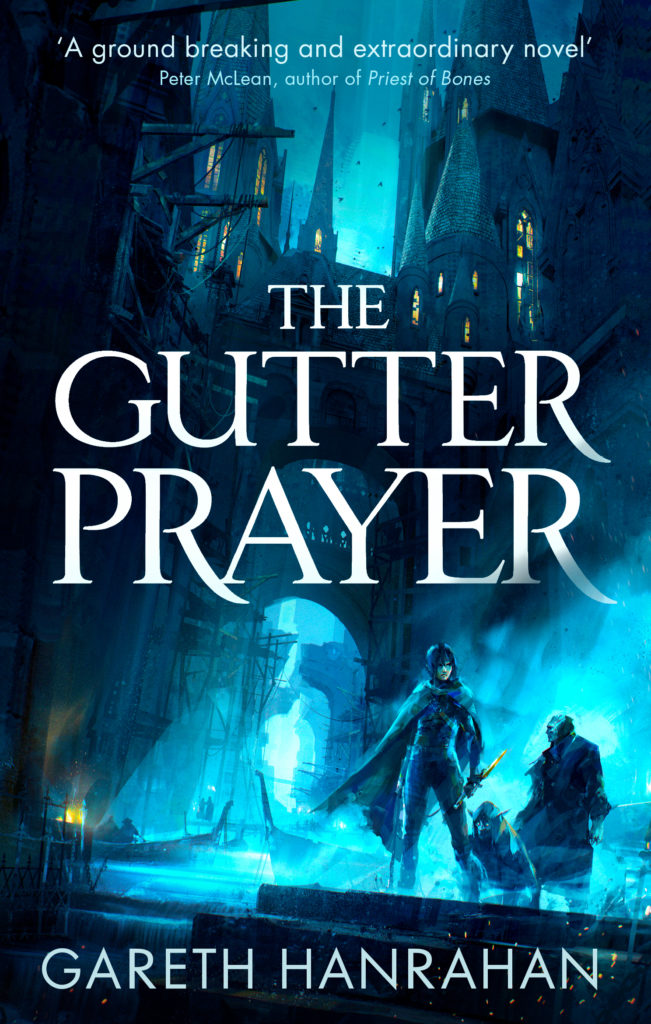
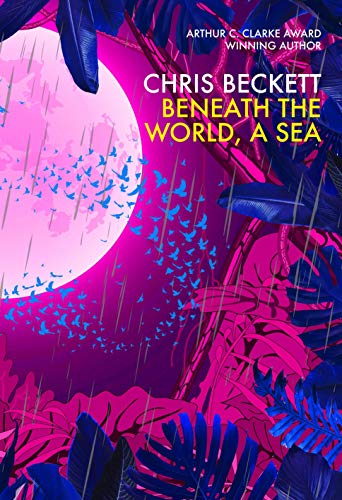
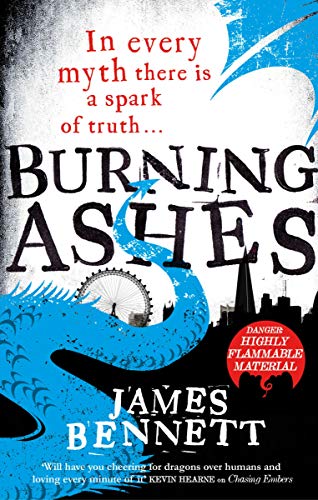
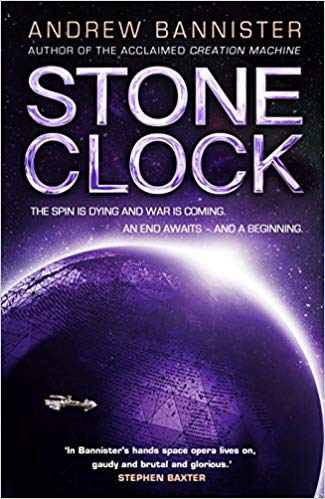
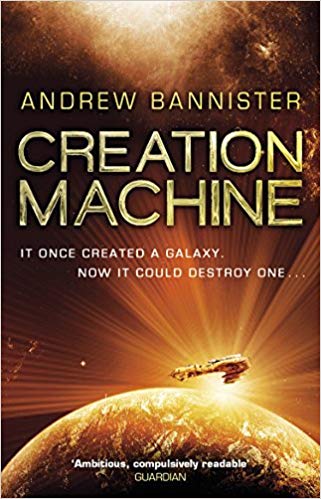
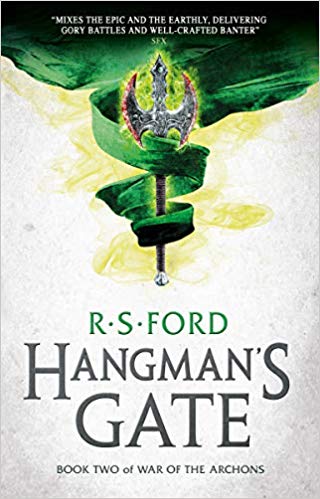
so helpful! thank you!
LikeLiked by 1 person
Great! That’s what I’m trying to achieve
LikeLiked by 1 person
Hi GJ,
Sounds like you have a great start with your work! Hope you get sales, but more important your fanbase. Getting those 1,000 loyal readers is the key. Keep doing what you do!
Gary
LikeLiked by 1 person
Thanks Gary, yes that’s the hard bit. More on that in my next post!
LikeLiked by 1 person
You are a tenth of the way there. It really is a mystery finding the right people, but there is an audience.
LikeLiked by 1 person